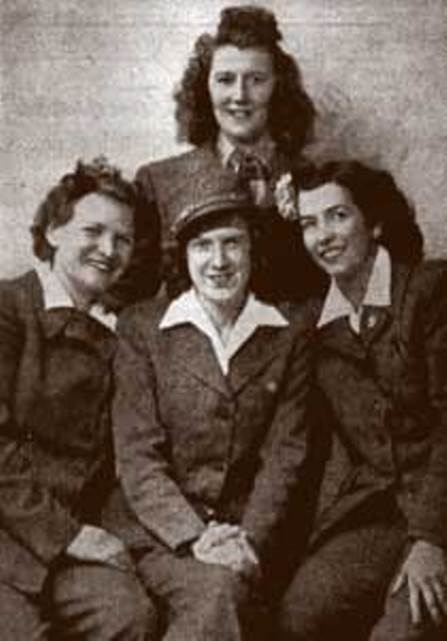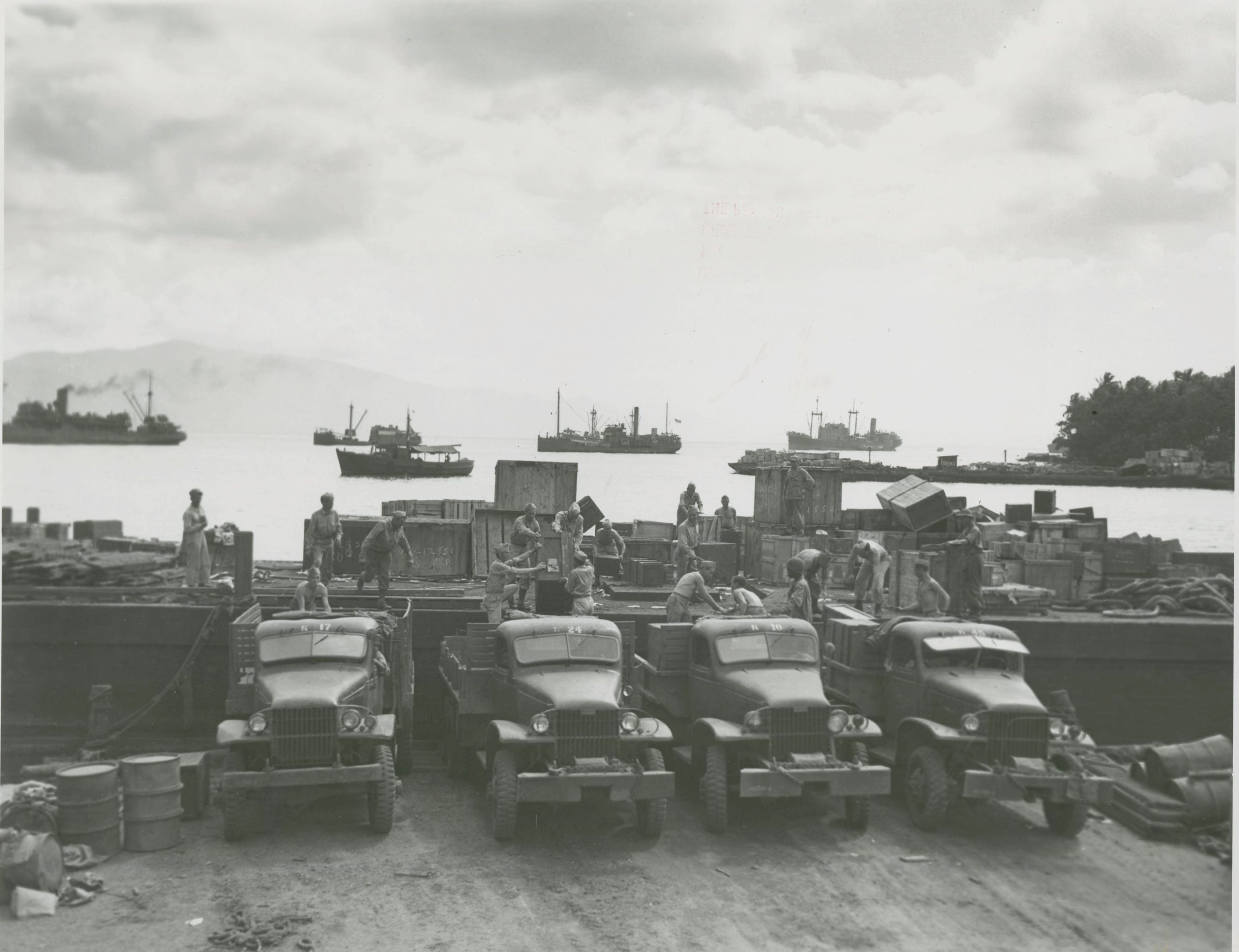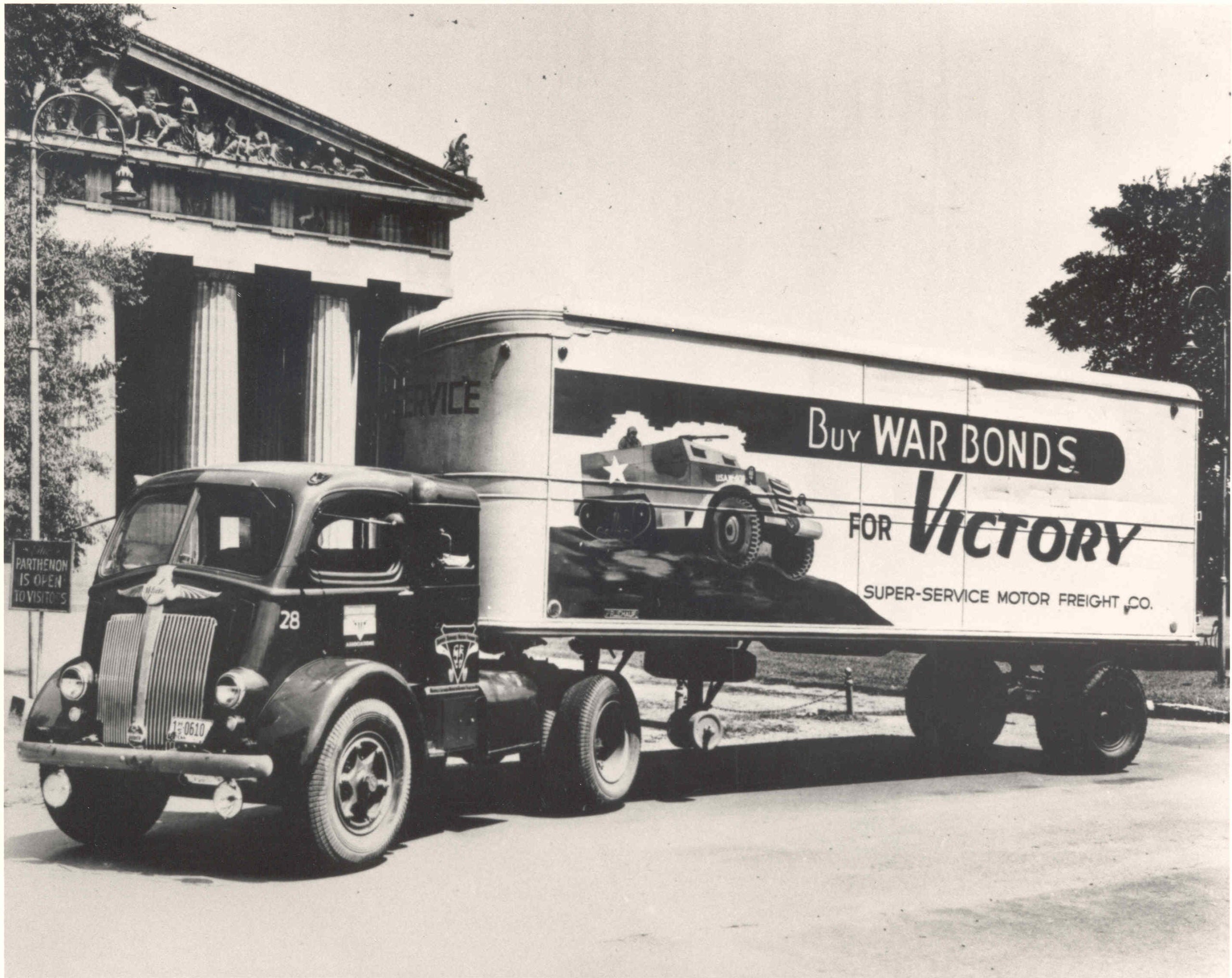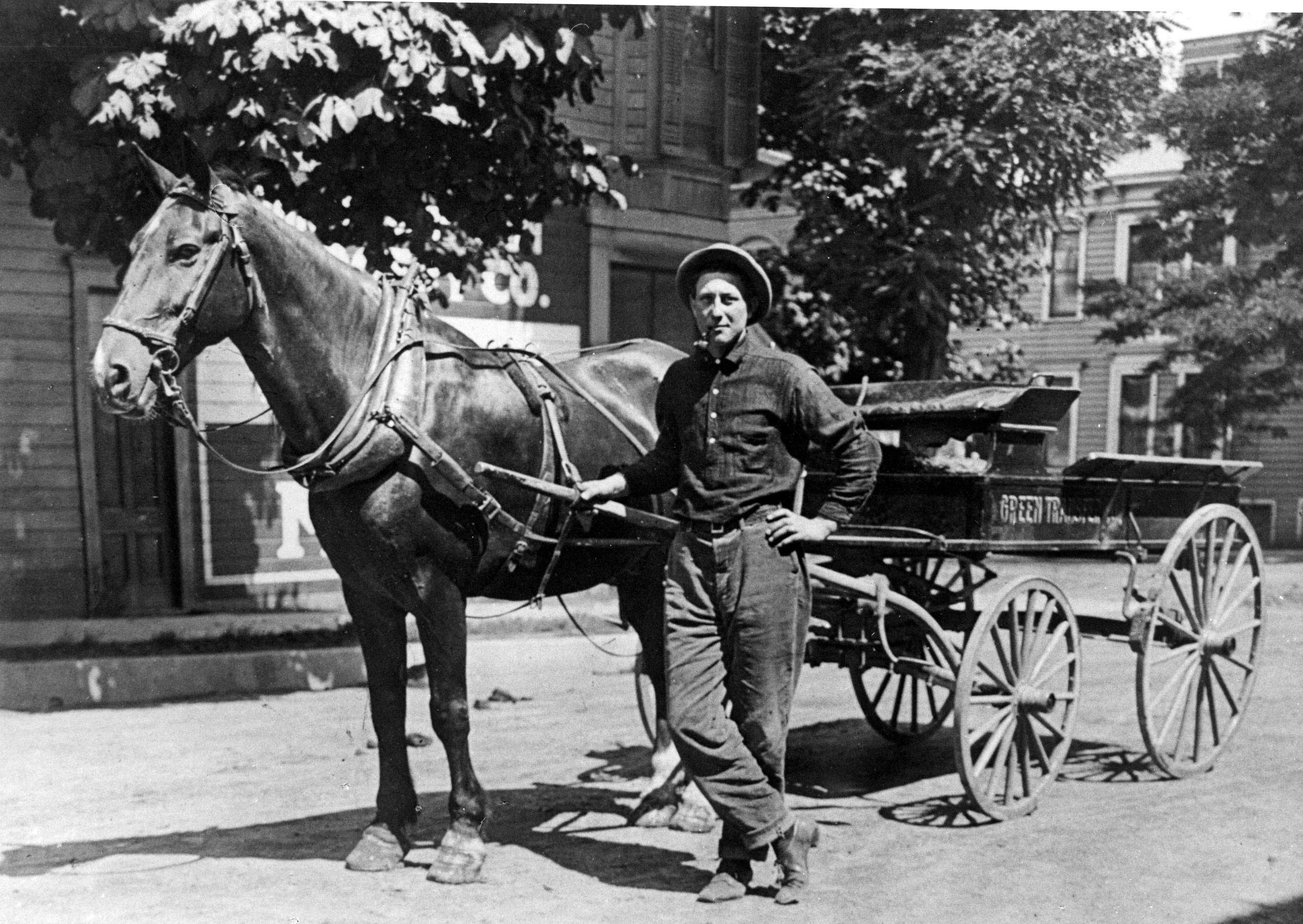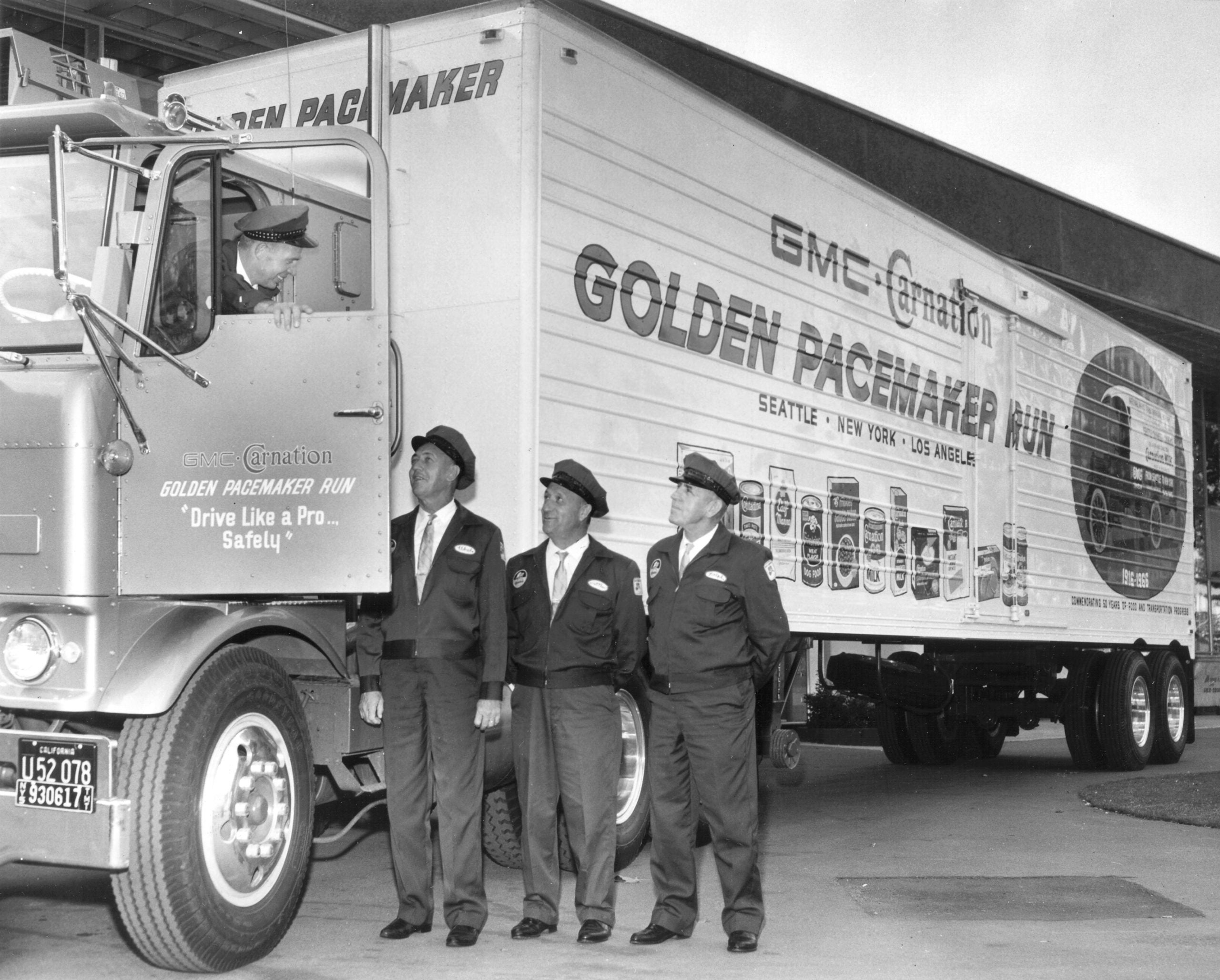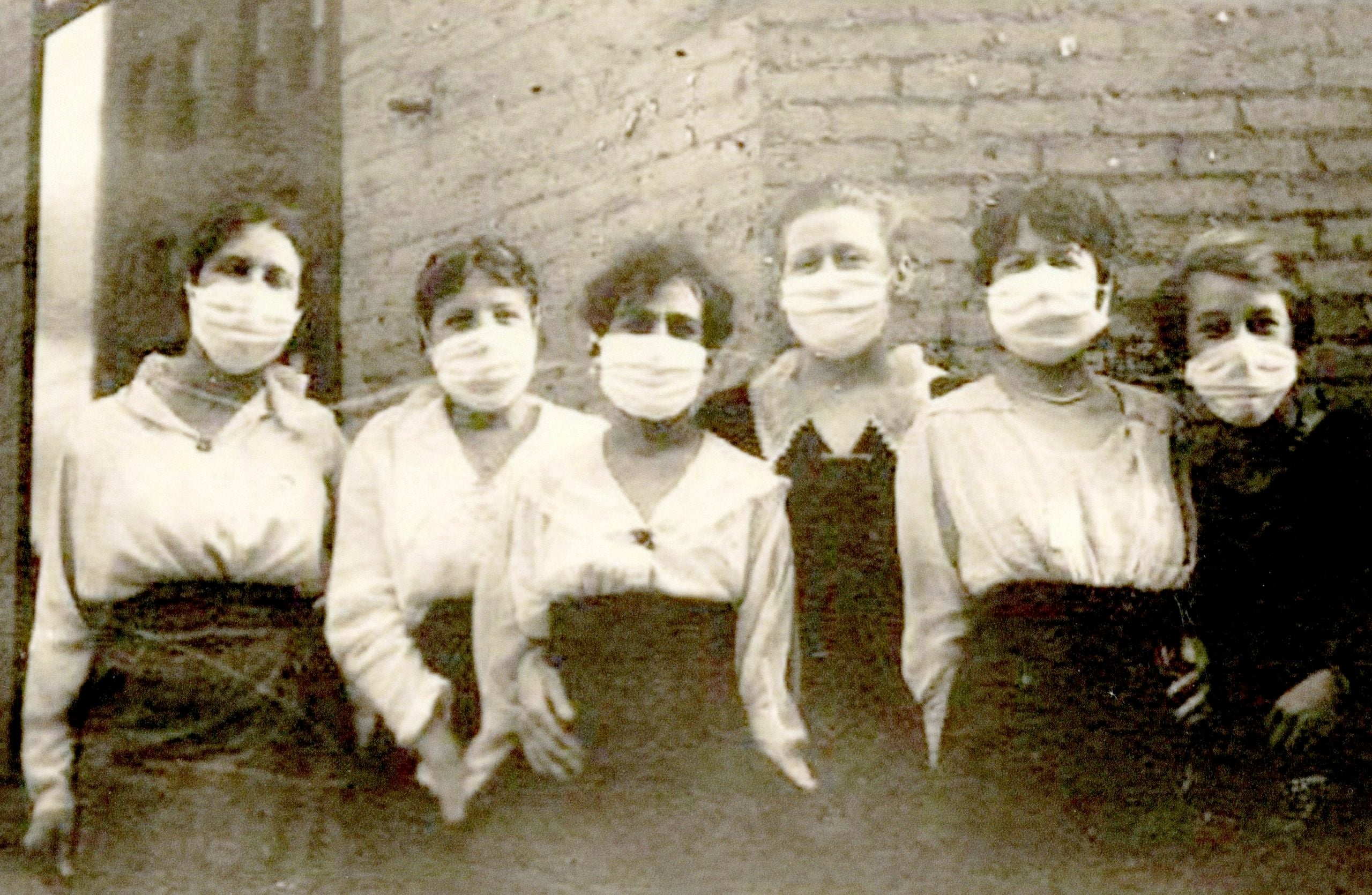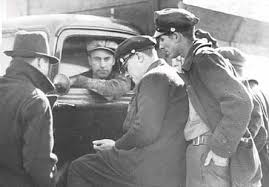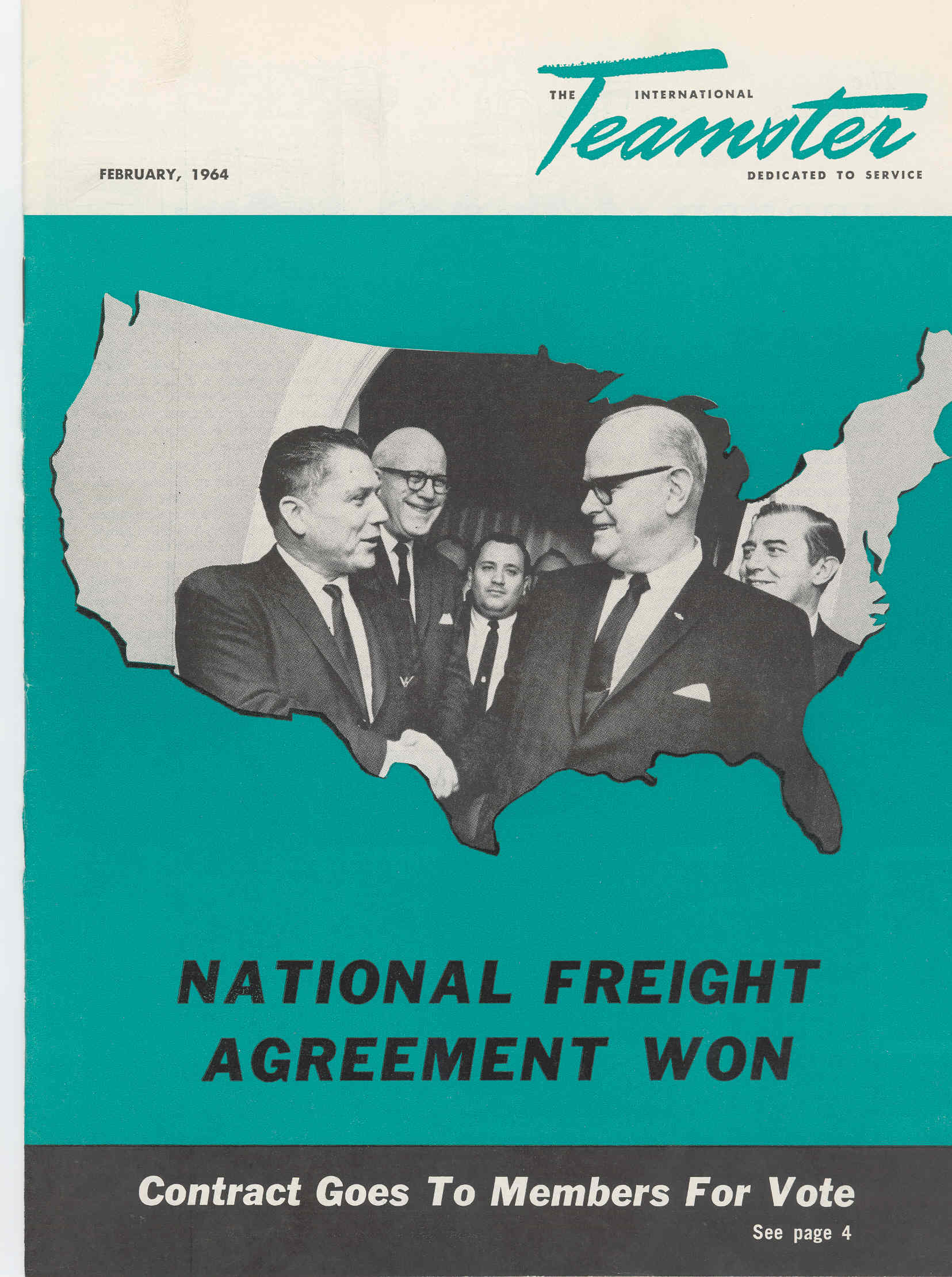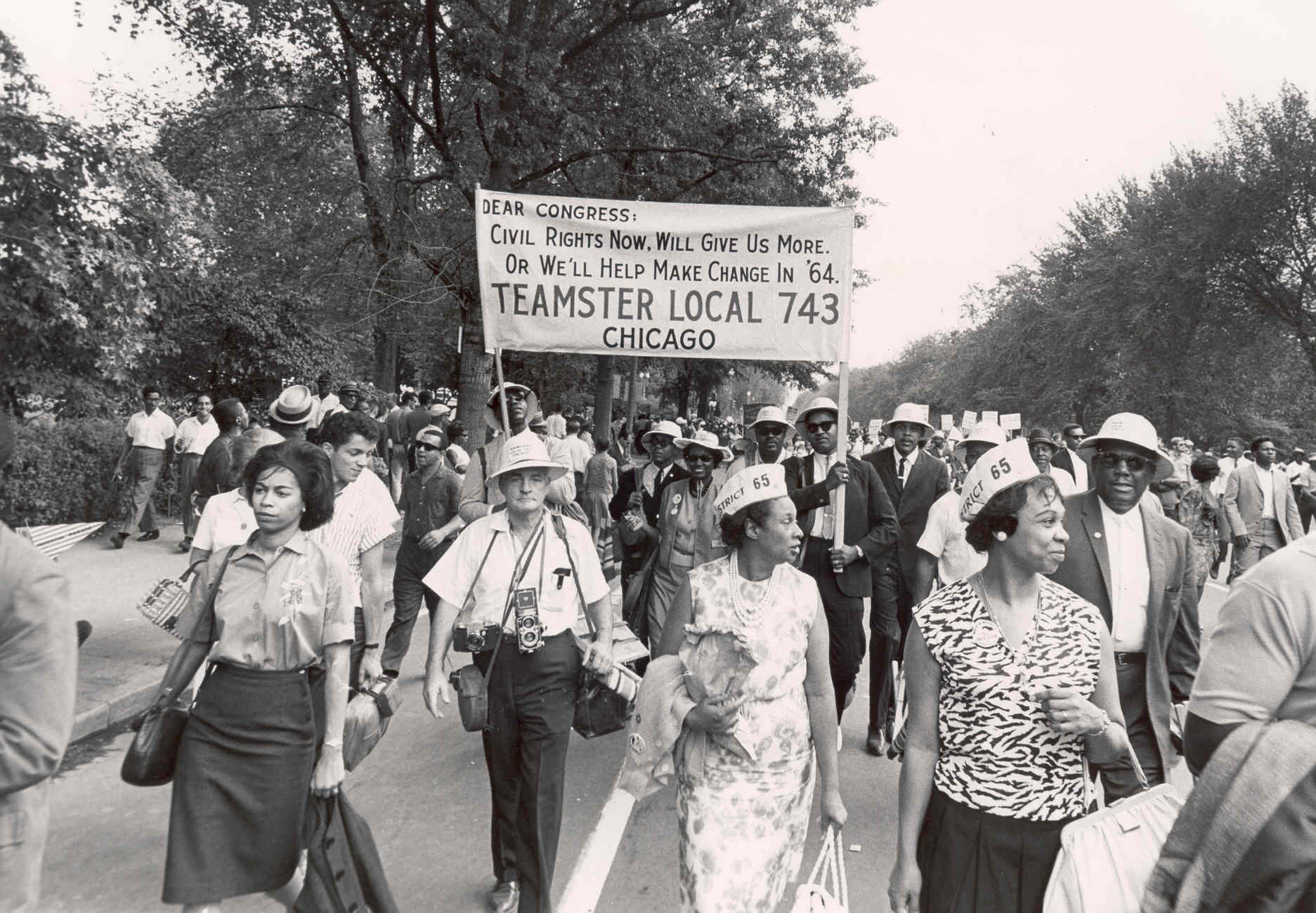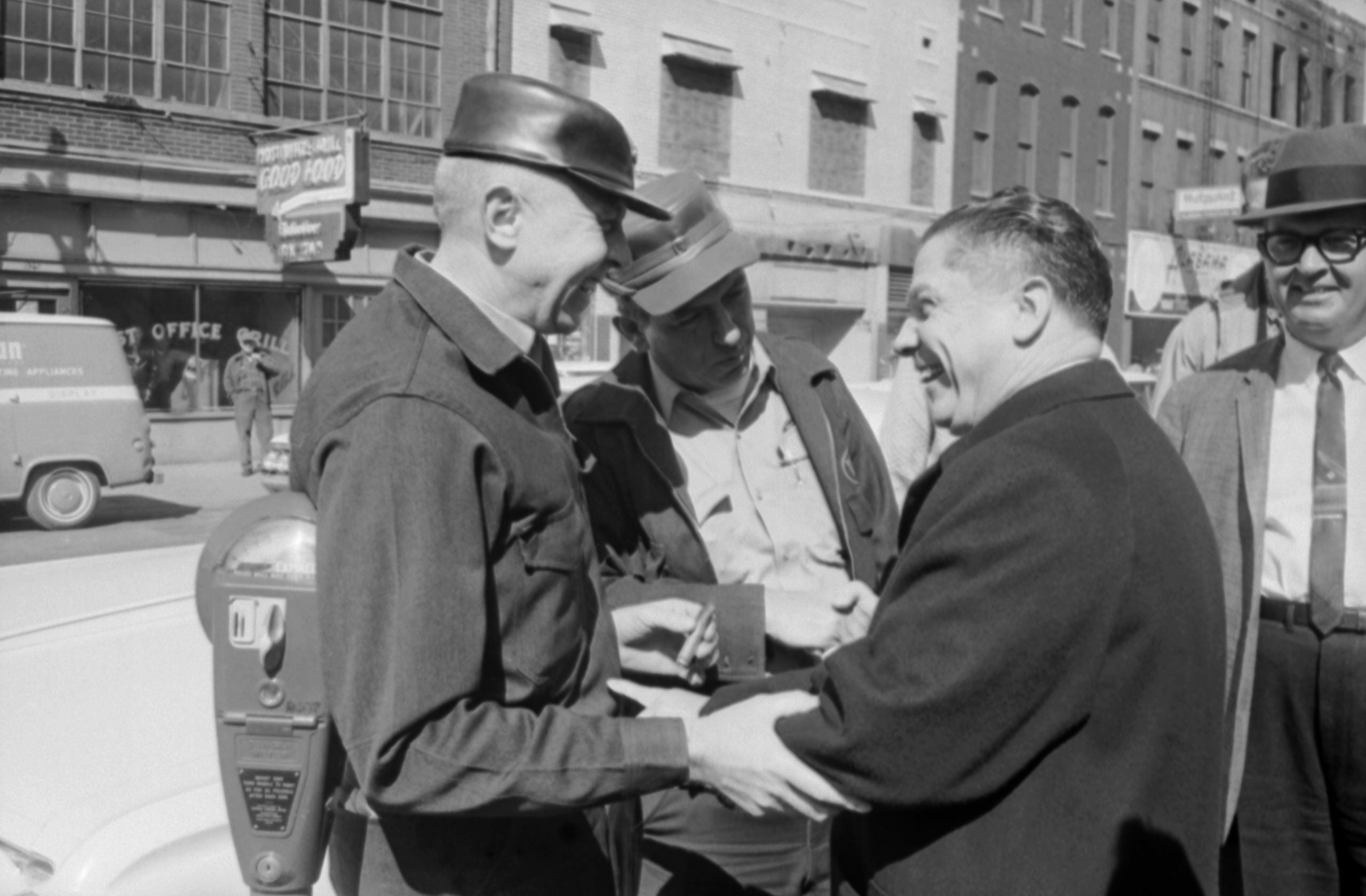Teamsters and World War II
In times of war, Teamsters have always answered the call to service at home and abroad.
During World War I, Teamsters enlisted in the armed forces and helped the military move from cavalry to motorized units. Teamsters not only were skilled drivers, but also were among the few trained to fix motor vehicles of any kind. These skills were crucial in the first battles of modern warfare.
Teamster men and women worked in many capacities on the home front and it was estimated that four out of five Teamsters purchased liberty bonds.
Allied in War Effort
World War II saw an even greater Teamster effort. The union was an integral part of the Allies’ victory in World War II, contributing on the battlefield and on the home front.
In 1942, President Roosevelt asked Teamsters General President Dan Tobin to travel to Great Britain and report back on how British unions were helping to win the war. On his return, Tobin urged the U.S. labor movement to emulate the British approach suspending all labor discord in the face of the Axis threat to world freedom.
The Teamsters led organized labor in a pledge to refrain from all work stoppages for the duration of the war. Tobin fully subscribed to this policy, maintaining that, “A man who quits work now without the consent and approval of his union—which he cannot get—is and should be and will be classed as an enemy of our nation and of our government.”
Buy War Bonds
The National Conference of Teamsters was formed to help meet the economic and military crises facing the U.S. by actively promoting war bonds. Teamster local unions, Joint Councils and regional conferences followed suit, raising more than $2 million in war bonds during the first 18 months of the war. And the Teamsters offered to give the government an interest-free loan of $8 million from its treasury to help win World War II. President Roosevelt politely declined the offer, but stated, “(Your offer) should be an example to the whole country.”
The Teamsters determination to make sure Allied forces were victorious did not stop there. The union invested 60 percent of its liquid assets in U.S. Treasury bonds during World War II. And it continued to buy bonds as a show of support.
Tobin summed it up: “We weren’t fooling when we told President Roosevelt that all of our assets were behind the government in the war and we weren’t fooling when we said this war must be won regardless of cost in men and money. The Teamsters are supplying men and money to the limit of their resources.”
The National Committee also organized all kinds of “drives” to help with the war effort, including drives to collect scrap metal and rubber to be used in military supplies. Nationwide, Teamsters took these activities very seriously.
Members of Local 364 in South Bend, Indiana were a perfect example of the Teamster spirit during the war. They collected 2 million pounds of scrap metal from old stoves, fences and other materials that went to the battle fronts in the form of guns, tanks and ammunition. Their effort won national recognition from the War Services Board.
On the Front Lines
By 1942, 125,000 Teamsters were in military operations for the Allied forces. The Allied victory would not have been possible without the Teamsters who drove troops to the front.
Teamster members did not hesitate to volunteer for service after the attack on Pearl Harbor, often going down in groups with other members from their locals to sign up together. They served in every branch of the armed forces, engaging in everything from building the Burma Road and implementing the Red Ball Express supply line in France, to landing on the beaches of Normandy.
Teamsters won scores of medals for bravery and dedication to duty in all times of crisis, including three members who received the highest honor, The Congressional Medal of Honor. Gen. George Patton, Gen. Omar Bradley and the Allied Supreme Commander Gen. Dwight Eisenhower all commended the Teamsters for their dedication, skill and service in the armed forces.
Teamsters at Home
As in WWI, Teamster women did their part for the war effort too. Women took on many jobs previously held only by men and proved they could hold their own in any work setting. They did every job given them and did them well. Teamster women also served in the women’s branches of the military at posts in the United States and overseas. Many employers were sorry to lose the women workers when they gave up their jobs to the returning veterans in 1945.
Following the war, the IBT made sure all Teamster veterans kept their seniority when they returned from the war and went back to work. The Teamsters were one of the only groups to do this for their members. A decade-long national campaign, “Have It Delivered,” promoted Teamster freight and delivery services, creating more jobs for members returning after wartime service.
Intense organizing campaigns in booming post-war industries such as the automotive trades, food processing, dairy, and workers servicing vending machines were also used to create more Teamster jobs.
The Teamsters have continued to serve their country in many ways in times of war and national crisis. Members have served honorably in every conflict since. Locals and Joint Councils continue to support and aid soldiers and veterans as well.
The Teamsters Union supports and sponsors many programs helping returning veterans get trained and find jobs at union employers.
